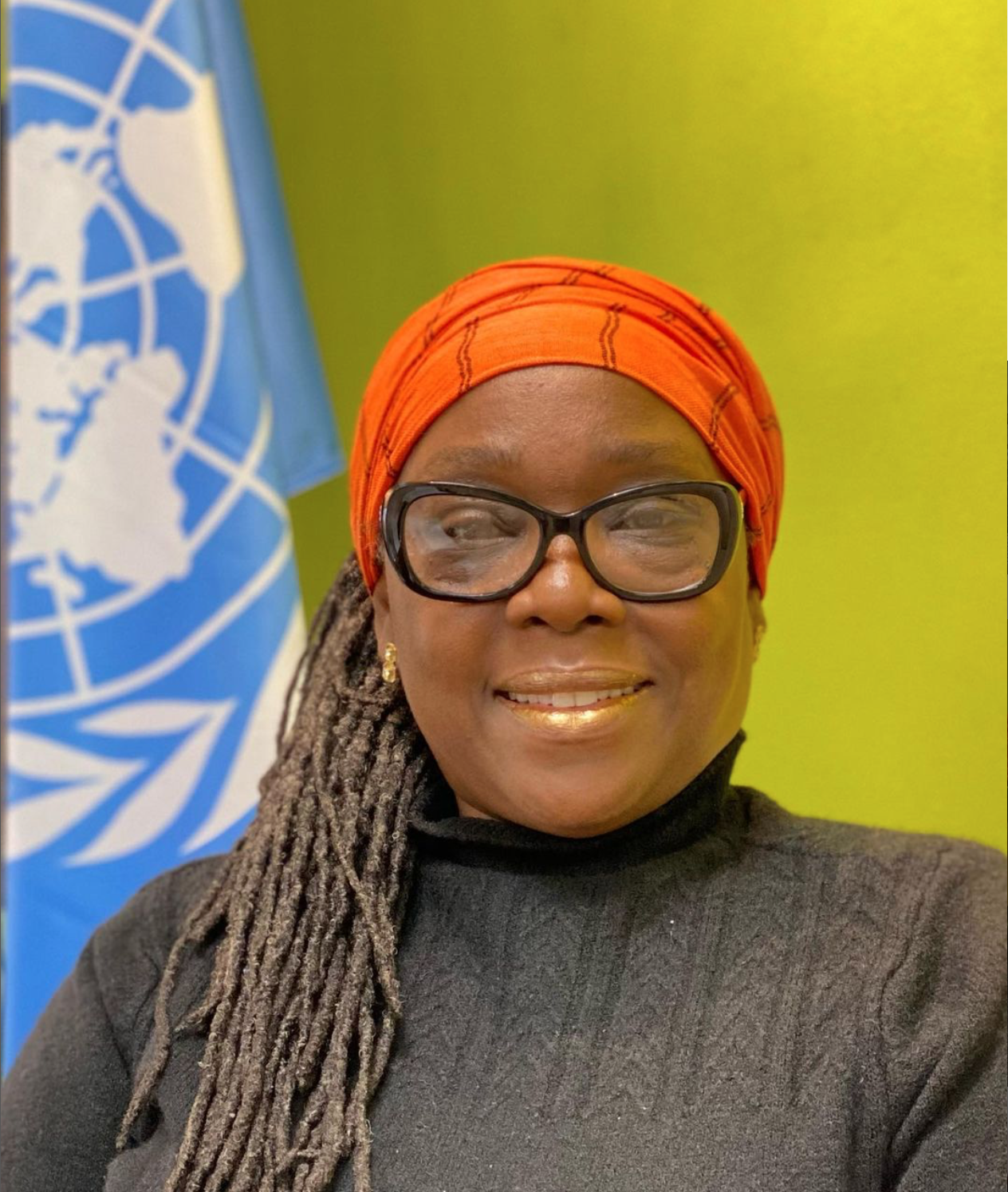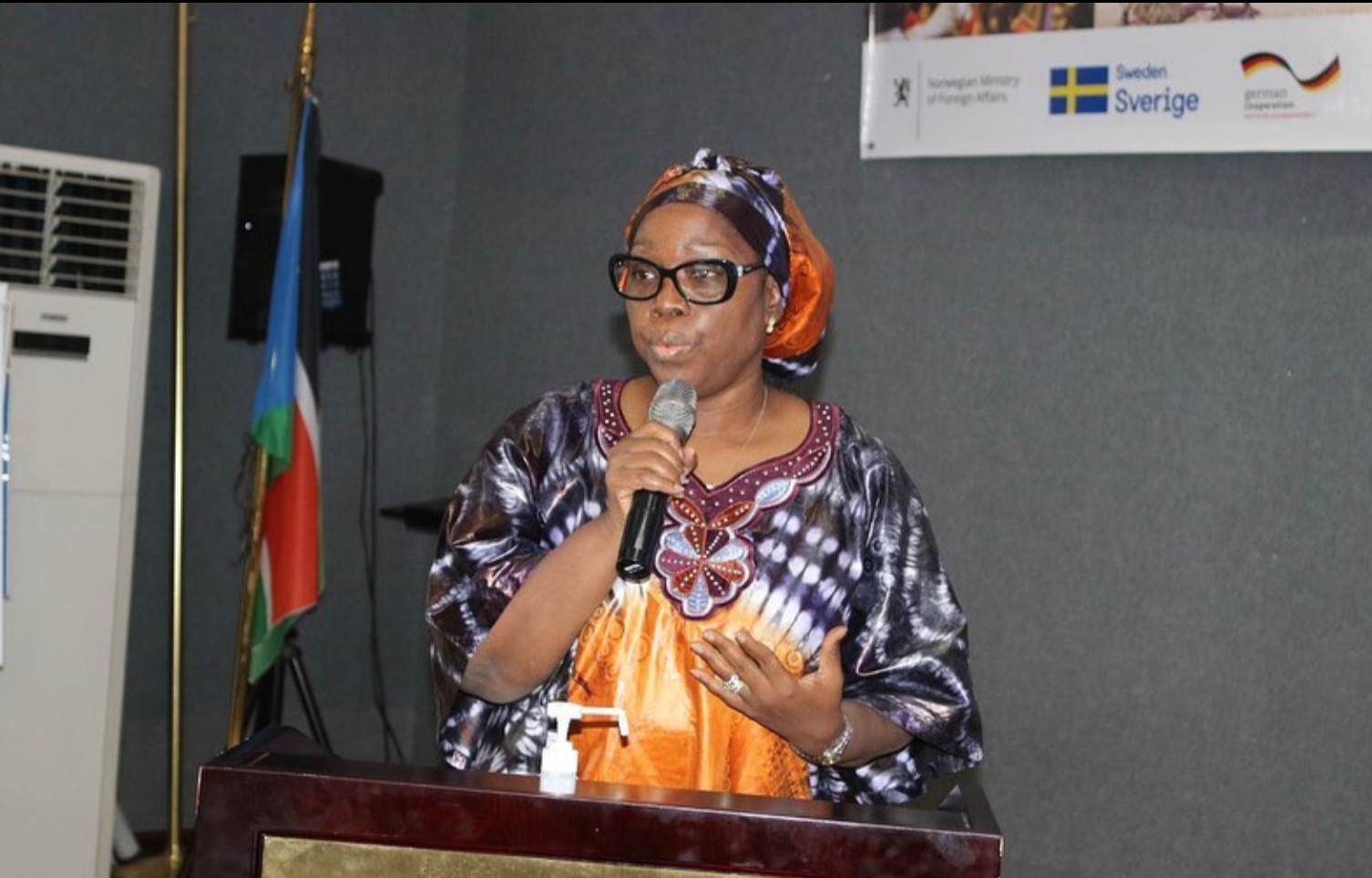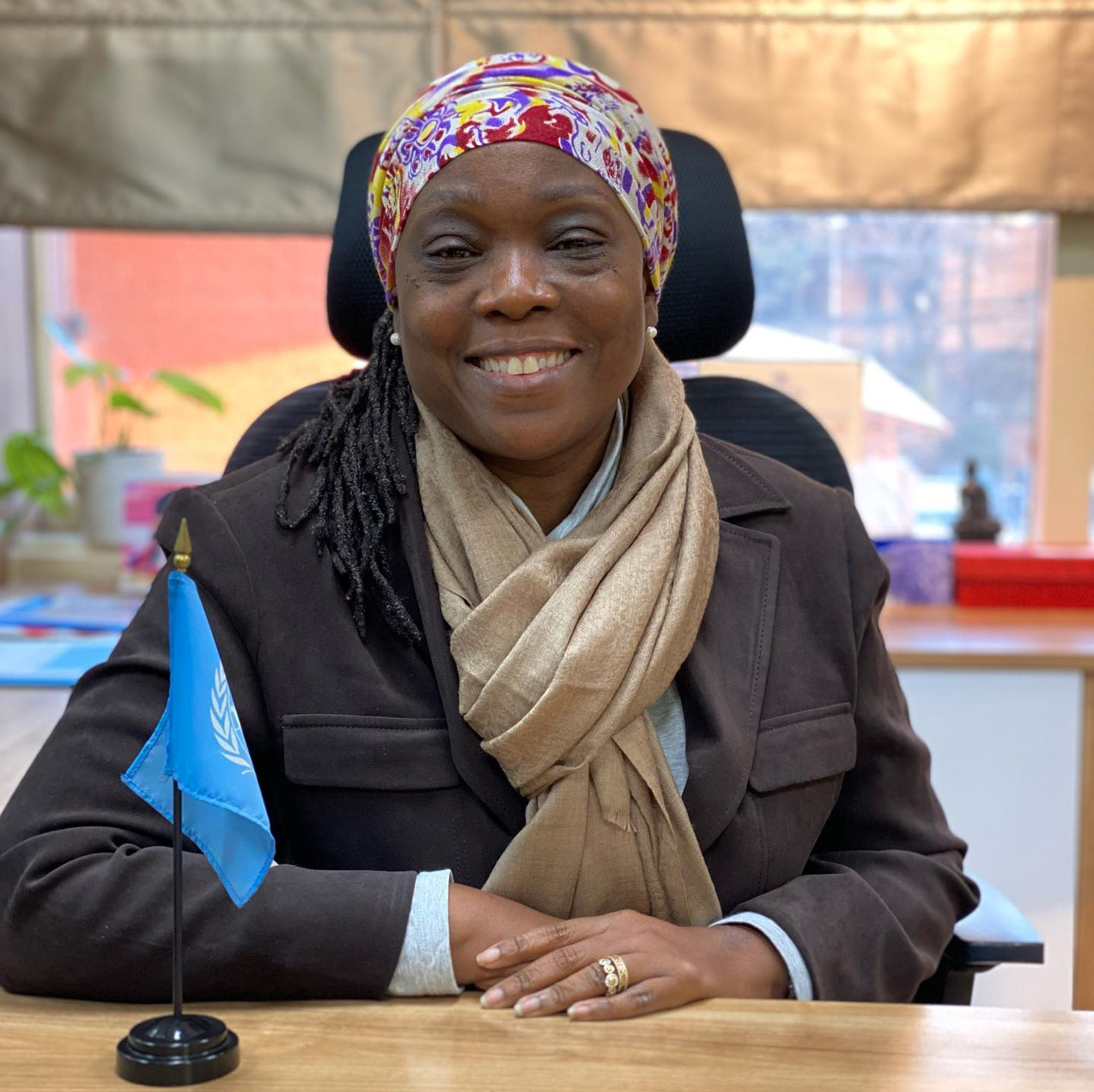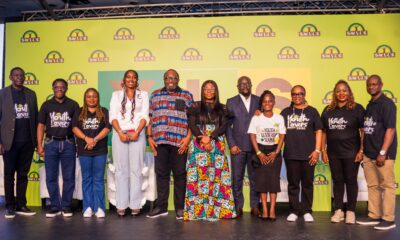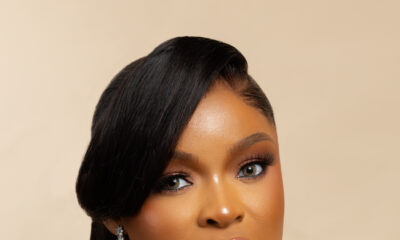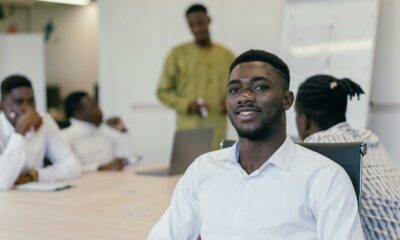Features
Building Tangible Opportunities for Women | A Conversation with United Nation’s Sara Beysolow Nyanti
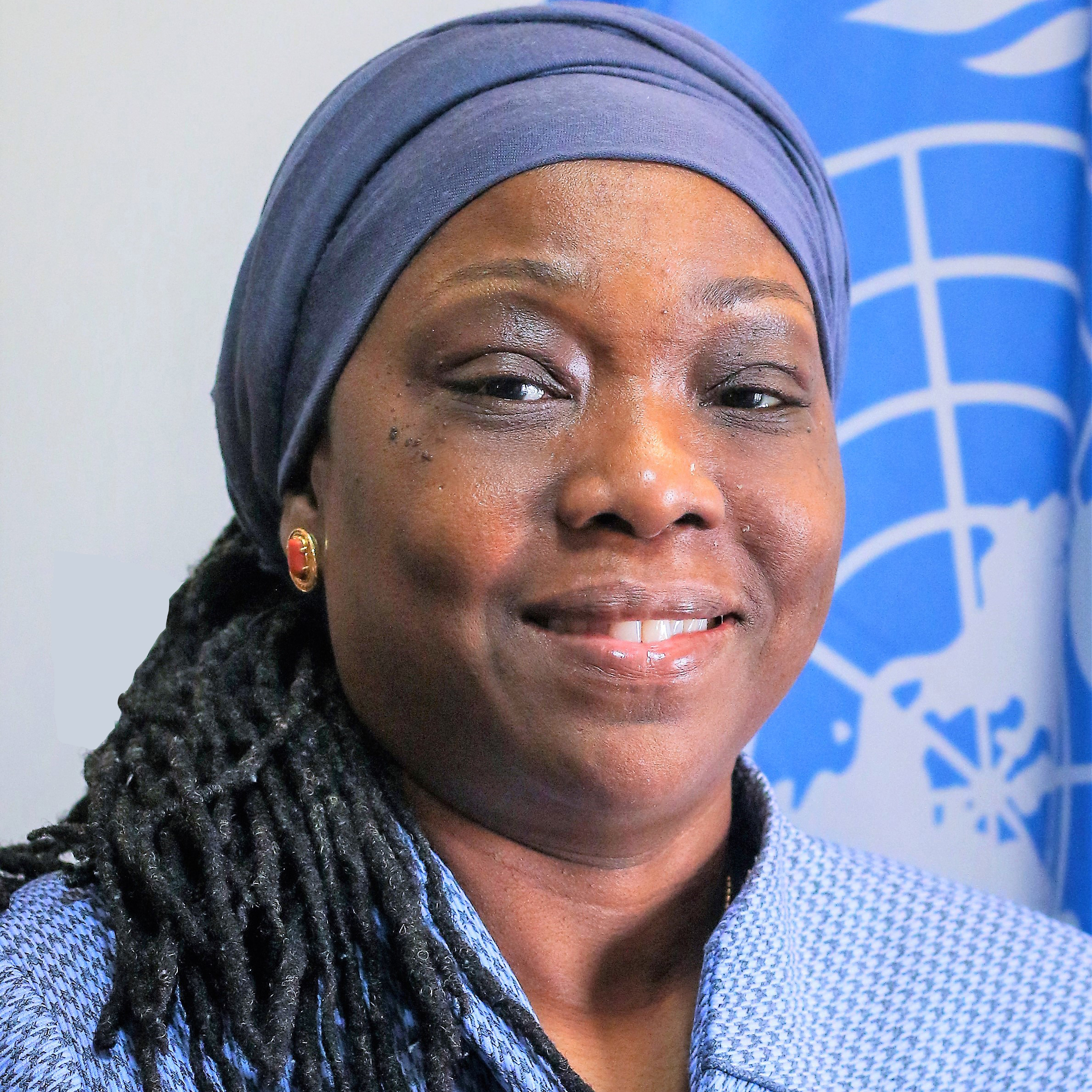
The month of March is celebrated, world wide, as the International Women’s Month. Beyond celebrating women, this month focuses on the role women play in nation building, and commemorates the cultural, political, and socioeconomic achievements of women all over the world.
Themed #BreaktheBias, this year’s IWD celebration focuses more on the need to challenge systematic inequalities and actively call out gender bias, discrimination and stereotyping. Growing up, we heard a lot of “women cannot do this or that, women cannot be this or that, or women must be this or that”, but that is changing now.
In a conversation with Sara Beysolow Nyanti, Deputy Special Representative of the United Nations Secretary General, she says there are structural biases that have been there for decades. These biases continue to be perpetuated by parents who continue to reinforce those gender biases in their homes. Then they’re reinforced in schools and in society.
This is true, many women are scared to work with other women because they have bought into the “female bosses are difficult to work with” narrative. Narratives like “women are women’s worst enemies” have also hindered a lot of women from enjoying the bliss of female friendships and networks. As women believe and ingest these stereotypes, we do ourselves a great disservice.
“The crisis is beyond women’s belief in discrimination,” Sara says.
People say that women are other women’s enemies – these are stereotypes. The reality is that 50% of the global population, in different forms in the global south, bear the brunt of the biases that exist. Women are the ones bearing the brunt, and the discussion around whether or not women are the ones who stereotype against other women is insignificant. The focus here is gender equality, and how do we make sure that women have equal access to services? That women have equal access to their rights. How do we make sure that women are treated equally with men? Equal pay, for example.
Negative stereotypes are not the only things holding women back from attaining better heights. Beliefs and biases like “women are natural caregivers”, “cooking comes naturally to women” seem so insignificant but they are equally harmful to women.
“We’ve seen it with the COVID-19 pandemic – women are the caregivers, women are the ones who are responsible to take care of others, and at the same time, women are responsible to bring in their share of income. These biases limit women’s ability to grow,” Sara says, “You’ve seen significant differences in terms of girl completion rates for school, middle school, including a tertiary school effect. Many of them don’t get into tertiary institutions because they have to drop out early, either because they fell behind – they are expected to do chores, they’re expected to take care of household duties, they’re not given the time to learn.”
Breaking the bias can only be done in one way: promoting gender equality in all sectors.
The normalisation of unequal power relations between men and women reinforces gender biases. We see it in education; women don’t have access to education as men do. And when girls enter school, they are confronted with sexual reproductive health issues, they are confronted with a lack of access to facilities that would allow them to stay in school.
The reality is that gender equality is non-negotiable. Gender equality is a must, and is necessary for the achievement and success of the Sustainable Development Goals.
Gender equality is important, yet we cannot achieve this if women are not placed at its core. At this point, we have to do things differently. “Putting women at the centre of the of the planning,” according to Sara, “putting women at the centre of the implementation, putting women at the centre in terms of even monitoring the results around SDGs, and making sure that women are in positions of decision making authority, and that women can take decisions on their own spaces” will definitely help.
Women leading solutions to women’s problems is the way to go. Violence against women and girls is driven and reinforced by deeply rooted norms and values, embedded in socio-cultural beliefs and expectations, and power in an overarching patriarchy. Except you are a woman who has experienced painful cultural practices like Female Genital Mutilation, girl-child marriage, and are at the receiving end of a deeply patriarchal society, you may not fully understand the need to effect certain changes, and swiftly too.
I had an experience in the Gambia on this issue where we were advocating for the sensation of female genital mutilation. We wanted the president to ban child marriage. At that time, we got young girls from around the country, who had been in very difficult situations, who had confronted some of these issues. We got them to come just as they were, you know, sometimes people will coach the children and tell them what to say. These young girls came just as they were, and they presented themselves and presented the issues that they confront at the local level. They presented it to the First Lady, they presented it to the Vice President. And I can’t say that that’s the singular action that led to the banning of FGM and child marriage in the Gambia, but I can say that a couple of days later, they were banned.
I share this example because it’s time that we allow girls who are the ones who confront these issues every day to actually have the space to talk about what they face. To talk about how they feel their solutions need to be heard. We need to give a voice to women and girls.
Cultural belief system may seem trivial and inconsequential, but they have major effects in the progress of women and girls. For instance, women produce 60 to 80% of the world’s food, yet in many cultures, women are not allowed to own lands.
There is a land crisis, and the issues have expanded detrimentally over the decades. You know, women make up the majority of the world’s poor and the over-representation among smallholder farmers means that their livelihoods are threatened by rapidly changing weather patterns. I see it in South Sudan right now. Talking to a female farmer just last week, around the challenges they face in terms of the yield because of climate change. They are not seeing the yield that they should, for example. So how do we support women who also make up smallholder farmers to have climate smart agriculture mechanism systems to help them to increase the yield and have access to markets.
A lot of this will not happen if we don’t put women at the table. You know, climate change and related disasters deepened gender inequality and women’s rights violations, and we now need to start recognising that. I cannot say we can reverse what has happened, but we definitely can change the trajectory going forward by doing the right things now.
In a bid to foster and promote gender equality, every year, during the International Women’s Month, countries, organisations and individuals host several IWD events, conferences, webinars, seminars and so on. These events are meant to bring women together to talk about building better for all women. Women-leaders from all walks of life are invited to give career and business advice to women and tips on how they can break barriers and smash glass ceilings. But do these events really serve their purposes? How are we ensuring that the who’s who of women communities are building real-time opportunities for all women beyond the walls of decorated halls, the glitz and glam of these events, and beyond the over-flogged advice to women to be “hardworking”, or “resilient”.
Global efforts to achieve gender equality have taken many decades. Stakeholders, strategies and innovation – many people have tried many things over the years, and it’s been challenging because systems are constructed to work against women; the systems have been constructed with a focus on men. These conferences, these events have been hugely helpful to draw attention.
We have to go beyond these events and these conferences to actually implement on the ground, tangible programmes with tangible results. That started, it’s already happening around the world in many countries. We’ve seen in many countries where you started to break the financial biases against women, more women-led organisations, more women-led engagements on the ground in terms of humanitarian space, in terms of the development space.
Women are leading in these efforts, women know best how to target women who are similar to them. And it’s important that we put women who have local solutions, who have local coping mechanisms, who understand what women confront, at the forefront in terms of implementing a lot of these agreements reached at these conferences and events.
These conferences and events, like the Beijing Platform, have brought attention to women and we’ve had subsequent forums like the Reykjavik global forum for women. We have one this year, the Rwanda Global Forum. All of these events are important. What’s critically important is that we now link them to tangible actions on ground, and make sure that women are at the forefront in terms of implementing those actions.
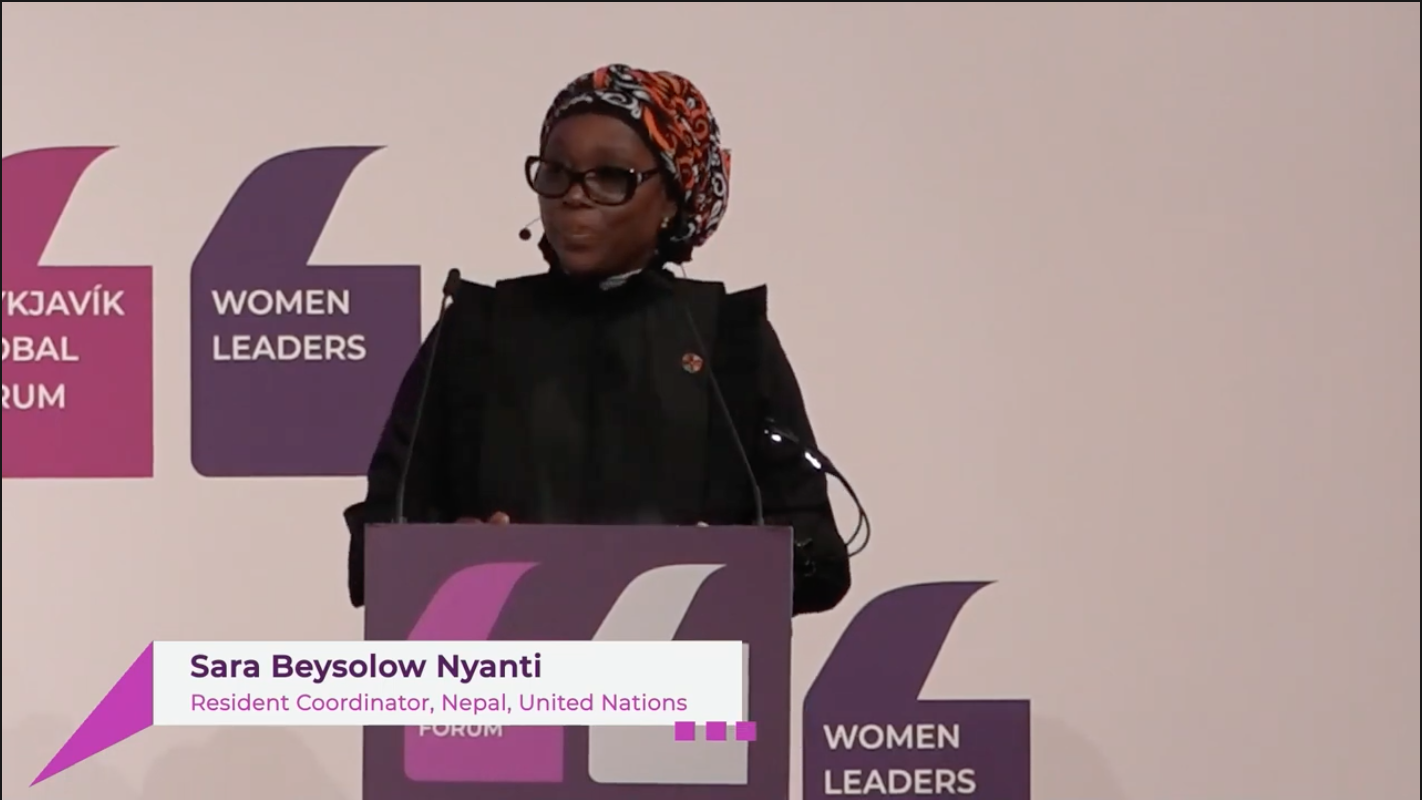
Beyond individual efforts, like Sara Beysolow Nyanti did in Gambia, we must involve our leaders – both at local and state levels.
We need to partner with those leaders at that level, and provide that space for them to actually open up the door for girls to come forward and talk about what’s required for their development. And I think that strategic partnership, building alliances at the community level, and with community leaders and with girls, I think it will help us to break some of these stereotypes and beliefs, and address some of the rooted issues, and making sure that women’s roles as human rights defenders, and frontliners are championed. And we have increased awareness around that. And I think if we can start to show people at the local level what women can be, what women can do, and to show them that those girls can be whoever they want to be if they’re given the right conditions, and the right circumstances. I think the more we do that and build these relationships and partnerships around that.
We’re doing it already. It’s happening in many places, but we need to do more of it. And to do more of it faster. The urgency requires us to do more today.
The home front is equally important. The way you raise the girl child heavily influences how she’ll take on the world.
We have to intentionally make this world equal for boys and girls, starting from when they’re born. You know, we talked about he for she and all of that, but it starts from the household – fathers promoting and supporting their daughters. In the workplace, men promoting other women. It is not seeing women as competitors, but as equal contributors to the development of the nations, of their communities, of their families. And I think together, we will reach our full potential. The issue is not women taking something away from men, it’s us realising the fullness of who we can be as a people, if all of us – men and women together – are driving towards development.
Today, women are shunning certain societal norms, deciding who or what they want to become, celebrating their achievements, challenging and breaking certain biases, and thanks to women like Sara Beysolow Nyanti, women can dream bigger and better.
___
Sara Beysolow Nyanti of Liberia is United Nations Secretary-General, António Guterres’, Deputy Special Representative in the United Nations Mission in South Sudan (UNMISS) and Resident Coordinator in South Sudan. She also serves as Humanitarian Coordinator.
Many thanks to Sara Beysolow Nyanti for having this conversation with us and patiently answering all our questions.

